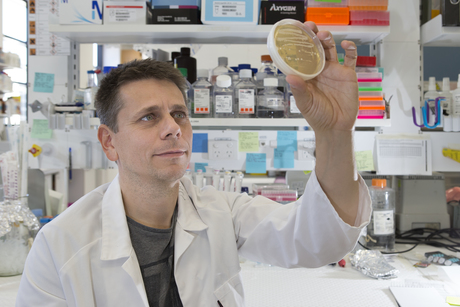Essential enzymes for DNA repair

Scientists at The Australian National University (ANU) and Heidelberg University in Germany have found an essential component in the DNA repair process. Their work was led by Associate Professor Tamás Fischer, who said the accumulation of mutations in the human genome is the main driving force behind ageing-related diseases and cancer development.
The team’s research found that hybrid structures composed of DNA and RNA play an important role in restoring genetic information after DNA is damaged. Dr Fischer said it was surprising to learn that these RNA–DNA hybrids were involved in protecting the DNA, as they were previously thought to only negatively affect the integrity of the human genome.
The study, published in the journal Cell, also found that the RNase H enzymes that target these hybrid structures are essential for the efficient and precise repair of damaged DNA. Associate Professor Fischer said these enzymes have been studied and used in molecular biology for many years, but their biological function was not entirely clear until now.
“Our study reveals that these enzymes are essential for DNA repair and this is probably one of their most important functions and the reason that they are present in every living cell,” he said.
Associate Professor Fischer believes the team’s discovery “opens the possibility for the development of new drugs that can target these enzymes, modulate their activity and block or enhance the efficiency of this important DNA repair pathway”.
He concluded, “The better we understand these repair pathways, the more potential we have to modulate them and possibly develop some preventative methods to decrease the rate of the accumulation of various mutations.”
Farm animals and aquaculture cryopreservation partnership announced
Vitrafy Life Sciences Limited has announced that it has entered a 12-month exclusive agreement...
Babies of stressed mothers likely to get their teeth earlier
Maternal stress during pregnancy can speed up the timing of teeth eruption, which may be an early...
Customised immune cells used to fight brain cancer
Researchers have developed CAR-T cells — ie, genetically modified immune cells manufactured...



